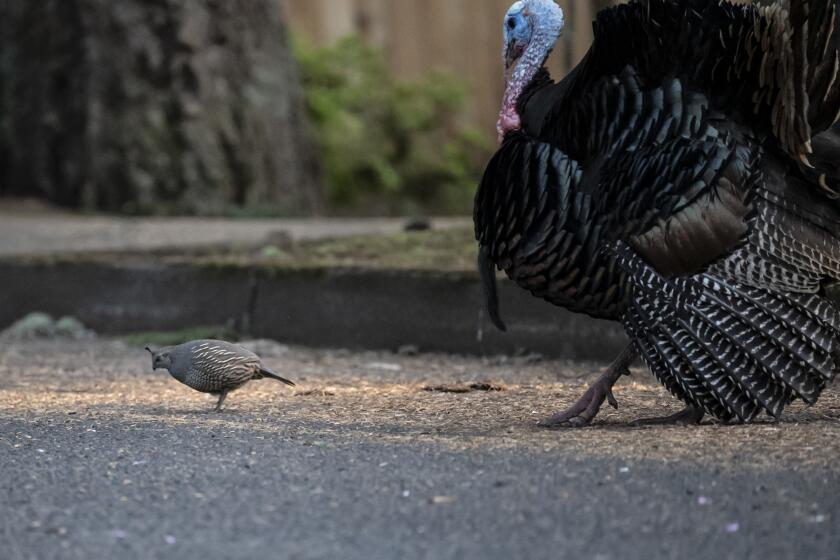Distemper Outbreak Decimates Canadian Sled Dogs
A distemper outbreak that decimated the Canadian sled dog population is good news for polar bears but threatens the livelihood of Eskimo hunters.
Doug Heard, a wildlife biologist for the Northwest Territories government, said recently that distemper during the last three months has killed as many as 1,000 of the husky-type animals in Canada’s vast central Arctic region, spreading as far east as Greenland.
Eskimo outfitters who take hunters and tourists--most from the United States or overseas--on lucrative polar bear hunts each spring must by law use dog teams for transportation rather than snowmobiles.
“These communities have very little income and the deaths of so many dogs can represent a very substantial loss,” Heard said in an interview from Yellowknife, Northwest Territories.
One of the hardest hit communities is Arctic Bay, a mostly Eskimo hamlet of 500 people on the northern tip of Baffin Island.
It is a community of trappers, hunter and fishermen. It depends greatly on revenue from the spring hunts, which usually begin in March but are now in jeopardy.
Craig d’Entremont, the hamlet’s secretary-manager, said the outbreak had killed up to 110 of the community’s 150 dogs.
“We had, prior to the distemper outbreak, eight dog teams,” d’Entremont said. “We only have one good dog team left.”
According to wildlife regulations, the Eskimo hunters of Arctic Bay can kill 12 polar bears a season. Four of them are set aside for sport hunting each year.
However, he said this year all four of the sports hunts--with rich trophy hunters coming from afar afield as Saudi Arabia, Germany and Texas--would have to be canceled.
“The Hunters’ and Trappers’ Assn. gets $15,000 for each hunt,” he said, referring to the local group that manages the event on behalf of the community, which shares in the profits.
“In addition, the community benefits to the tune of several thousand dollars from hotel accommodation, purchase of arts and crafts and other traditional artifacts.”
D’Entremont said dog teams also were used as a tourist attraction during the annual Midnight Marathon, the world’s most northern running race, held on July 1.
He said the hamlet first noticed the outbreak in December when trapper Isaac Shooyook, who had been living in a outpost camp 80 miles away, reported one of his dogs had died and another was sick after dining on Arctic fox.
More to Read
Start your day right
Sign up for Essential California for news, features and recommendations from the L.A. Times and beyond in your inbox six days a week.
You may occasionally receive promotional content from the Los Angeles Times.






